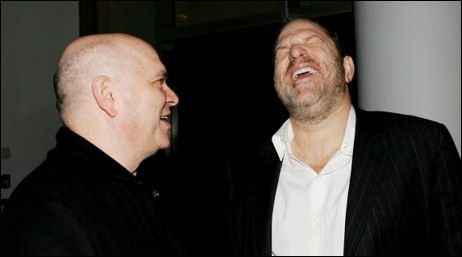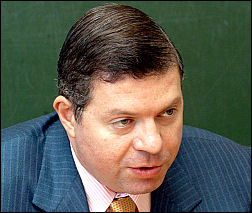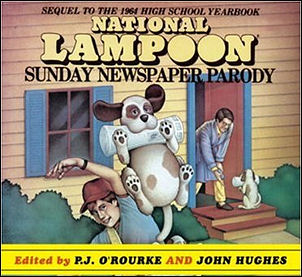For over 25 years I’ve watched films in the finest screening rooms in Los Angeles, New York, Cannes, Paris….all over. The sound, projection and butt-comfort qualities have been sublime at 90% of them. (Paris screening rooms have the best seats — velvety, armchair-sized, sofa-soft. The rear seats at Sony’s high-altitude screening room in Madison Avenue are almost as good.) The point is that I’ve been to screening-room Shangri-la hundreds of times and I know how good it can get, and there’s no way I’d pay $35 bucks to see a movie at a Village Roadshow Gold Class Cinema.
None of the private rooms I’ve been to have projection qualities that exceed what you get at L.A.’s Arclight, where a ticket costs $14 on weekends and $11 on Sundays and weekdays. Why the hell would anyone with my champagne tastes pay two to three times that amount to see a perfectly projected film in a really terrific seat with my feet on an ottoman? I wouldn’t pay $35 to see a film if they threw in a complimentary neck or back massage. I wouldn’t pay $35 bills for a film if they had naked girls as ushers. Well, maybe.
And yet a team of investors — Village Roadshow Ltd., Act III, Lambert Entertainment and the Retirement Systems of Alabama pension fund — are dead serious about spending $200 million to build 50 super-theaters over the next five years. Each theatre will offer 40 reclining armchair seats with footrests, digital projection and the capability to screen 2-D and 3-D movies. The first two venues set to open will be in South Barrington, Illinois, and the Seattle suburb of Redmond in October. Others are planned for Fairview, Texas, near Dallas-Fort Worth, and Scottsdale, Ariz.
I see disaster. The same nouveau-riche money-to-burn types who won’t blink about paying $$70 for two people to see a new film have, of course, top-of-the-line screening facilities at home. I would go so far to call this a stupid idea.
Richard Widmark passes
Richard Widmark has departed after living a mostly full and rewarding life for 93 years. We should all be so fortunate. I know I’m supposed to say that his performance as Tommy Udo in Kiss of Death (’47) was his most memorable work. But I’ll always enjoy three of his performances a bit more — the Dauphin in Otto Preminger‘s Saint Joan, the hard-assed Colonel Lawson in Judgment in Nuremberg and his oily operator character in Against All Odds. Plus those run of 20th Century Fox films he made in the early ’50s. Widmark was 15 years younger than the calendar year. He didn’t break into films until in his early 30s.
Ms. Knee-Capper
If Hillary Clinton defeats Barack Obama among the secular, deeply dug-in Pennsylvania Democrats by a lousy 10% margin, it’ll be meaningless. She has to tan his hide with a 20% victory margin or the chattering class will just shrug it off. A new Rasmussen Reports telephone survey in Pennsylvania shows Clinton leading Obama 49% to 39% right now, which reflects her favorable rating having dropped to 68% from 76% in the last survey.

Meanwhile, N.Y. Times columnist Maureen Dowd has written in today’s (3.26) column that “some top Democrats are increasingly worried that the Clintons√ɬ¢√¢‚Äö¬¨√¢‚Äû¬¢ divide-and-conquer strategy is nihilistic: Hillary or no democrat. Or, as one Democrat described it to ABC√ɬ¢√¢‚Äö¬¨√¢‚Äû¬¢s Jake Tapper: Hillary is going for ‘the Tonya Harding option’ — if she can√ɬ¢√¢‚Äö¬¨√¢‚Äû¬¢t get the gold, kneecap her rival.
“Even some Clinton loyalists are wondering aloud if the win-at-all-costs strategy of Hillary and Bill — which continued Tuesday when Hillary tried to drag Rev. Wright back into the spotlight — is designed to rough up Obama so badly and leave the party so riven that Obama will lose in November to John McCain.
Hence the ‘No drama, vote Obama’ placards and T-shirts that “are popping up at Obama rallies,” she writes, “with one of his military advisers [dubbing] him ‘No Shock Barack.'”
Here is one reported result of Hillary’s kitchen-sink tactics. May the vile karma that she’s created come back and swamp her life down the road.
Was Harvey the bad guy…again?
In a 3.25 piece called “How (and Why) Anthony Minghella‘s Talent Wasn’t Quite Fulfilled,” New York critic David Edelstein fingers Harvey Weinstein as…well, not quite the central villain in the life of the just-deceased British filmmaker, but some kind of messy meddler and spiritual usurper.

“Now that the shock of Anthony Minghella’s sudden death has dissipated slightly,” Edelstein begins, “I think it’s less unseemly to say that this brilliant and soulful filmmaker died unfulfilled. And I can’t help thinking that what happened has something to do with someone whose name rhymes with Shmarvey Shmeinstein.
“I am not remotely suggesting here that Minghella sold out and became a Hollywood hack: Every one of his films was an attempt to merge his own bold, socially committed sensibilities with the insistent demands of his shmasters. But why did he complete only six films (counting one in the can) in the eighteen years between Truly, Madly, Deeply and his death? Where were the gutsy little modestly budgeted movies — good or bad or uneven — that could have kept him rooted?
“Anthony Minghella was only 54 and might have had a quarter-century left to break new ground. His passing robs us of the movies he might have made and leaves behind a cautionary tale. It’s not that he was forced to make crap. It’s not that his movies were entirely mangled by big hairy paws. It’s that an artist who could have set an example for gutsy personal filmmaking surrendered his autonomy — as so many others have done — in the name of someone (or shmomeone) else’s ego.”
For what it’s worth, my sense of Minghella is that on some level he was at least half-comfortable with not being the most prolific filmmaker of all time. He was a beautiful man in many respects, but I think he liked to live well. He loved the aromas and textures and ecstasies of day-to-day living as much as (and perhaps a tiny bit more than) the rigors and tortures of creation.
For whatever reason Edelstein’s description of the Anthony-Harvey dynamic has reminded me of the relationship between Rod Steiger‘s Komarovsky and Omar Sharif‘s Yuri Zhivago.
Missing and…?
Russian businessman and movie financier Leonid Rozhetskin, 41, who allegedly covered the shooting costs of Hamlet 2 single-handedly, may have been killed, according to a 3.26 Moscow Times story by Max Delany.

Leonid Rozhetskin
Hamlet 2 played at last January’s Sundance Film Festival and will be released by Focus Features on 8.22. Rozhetskin also produced Duncan Ward and Danny Monahan‘s Boogie Woogie, a possible ’08 release.
A friend of George Hickenlooper‘s and, one gathers, an associate of Hamlet 2 producers Eric Eisner, Ron Yerxa and Albert Berger, Rozhetskin has been missing since 3.16 and is feared dead, as blood traces have been found at his luxury villa in Jurmala, a resort town not far from Riga.
Every now and then a high-flying businessman gets offed, but it’s an infrequent occurence on these shores. The last one with Hollywood ties who got clipped, I think, was Roy Radin. Russia is known to be a very rough place, of course, with the Russian mob and all, but nobody knows what happened so let it lay for now.
Hamlet 2 will be released by Focus Features on 8.22. Rozhetskin also produced Duncan Ward and Danny Monahan‘s Boogie Woogie, a possible ’08 release.
Rozhetskin “was a Russian billionaire who spent a lot of time financing films in Los Angeles,” Hickenlooper told me this morning. “He put up the entire budget for Hamlet 2. I got to know Leonid well and at times played squash with him in Westwood. He was at one point going to finance a project of mine. This is sad and shocking news.”
Seeking “Big Baby”
L.A. Times columnist Patrick Goldstein posted a 3.24 piece on ’80s-youth- comedy poobah John Hughes, honoring the now-reclusive director as the author of the original treatment of Drillbit Taylor and the father of the Judd Apatow and Kevin Smith-type comedies filling screens today. Defamer found Goldstein’s piece unsatisfying, however, and yesterday ran a request for reader questions to be sent to Hughes for some kind of follow-up. I don’t have a question for Hughes, but I have a question about him that I’d like answered.

It concerns an article about Hughes in the National Lampoon. Or maybe it was in Spy magazine. Sometime in the early to mid ’80s, one of these two ran what seemed at the time to be a heavily-sourced, hugely entertaining account of Hughes’ petulant, sometimes irascible behavior as observed by anonymous colleagues and assistants. The article was called “Big Baby,” and it had, I recall, a distinctive painting of enfant terrible Hughes on the opening page.
I trusted it partly because of Hughes’ writing history with the Lampoon going back to the ’70s. With NatLamp staffers (or former staffers) having their own first-hand knowledge of the guy, I figured they had to have pretty good sources. Obviously this observation is moot if it was written for Spy.
If anyone has a copy of “Big Baby” and could send me a scan of the pages, I would make it available here. Please send a scan of the cover page also, information about the issue (date, issue #, other articles), and so on.
Pit Stop

Johnnie’s on Sepulveda, on the way back from tonight’s IMAX screening of Martin Scorsese’s Shine A Light — Tuesday, 3.25.08, 10:25 pm
Bush buddy
Speaking of brilliant impressions, the guy who may or may not do a first-rate George Bush in Harold and Kumar Escape From Guantanamo Bay but who definitely has the knack of it down in this My Space video clip is James Adomian.
There’s a hilarious four-page scene between Harold, Kumar and Adomian/Bush at the Bush ranch in Crawford, Texas (cheaper to replicate than the Oval Office) in a 7.10.06 draft of “Harold and Kumar 2” by Jon Hurwitz and Hayden Schlossberg. Obviously written a long time ago. The scene could have been revised 15 times since then or cut down to nothing, or it could have survived. No one I know has seen the film, but if the Bush scene is played the way its’ written on pages 106 through 110, it’ll be pretty funny. Okay, fairly amusing.
I rarely laugh out loud when I read comedies, but I did this time. No spoilers but it’s good stuff.
Planet Eater
“I can eat planets….hah-hah-hah-hah! I can fly, okay? I can fly. I like to throw nails in the street. Hah-hah-hah!….stop, shut up, shut up….stop. Shut. Up. Hah-hah-hah!…I’m okay.”
Cheers to Miles Fisher for doing the best Tom Cruise voice and laugh…ever. The clip is from the Weinstein Co’s Superhero Movie!.
Uptick Action
Three mildly interesting things have just happened in the Democratic primary race — one today, two yesterday.
First, a Public Policy poll released earlier this afternoon found that Barack Obama had regained a sizable lead over Hillary Clinton among North Carolina voters, 55 to 34 percentage points. He leads 80% to 14% among black voters with Clinton topping him 47 % to 40% among white voters, although she was allegedly ahead of him with this group at 56% to 30% a week ago.
Second, Senate Democratic Majority leader Harry Reid of Nevada told the Las Vegas Review Journal‘s Molly Ball yesterday that “things are being done” to assure that the Clinton-Obama race will be settled “well” before the convention (most observers believe it’ll definitely be settled by the early-to-mid May results of the North Carolina, Oregon and Indiana primaries).
And third, U.S. Senator Mary Cantwell of Washington State, a current Clinton supporter, yesterday told the Columbian’s editorial board that the candidate with the most pledged delegates at the end of the primary season in late June will have the strongest claim to the party’s presidential nomination.
In other words, there’s a slightly more pronounced feeling of support and sentiment tipping away from Clinton, and the impact of last week’s Reverend Wright trauma appears to be fading in some quarters. Weird, though, about the disparity between North Carolina voters and the hermetic, rank-and-file Pensylvanians — redneck, lunchbox, under-educated, down-in-the-mines, etc.
Book vs. Script
Before I proceed this is a spoiler warning for all the history scholars out there who don’t know that gangster John Dillinger was shot and killed by FBI agents on a hot night in Chicago in July 1934. Okay? Sorry if this upsets anyone who wants to be kept in a state of white-knuckled suspense when they sit down to see Michael Mann‘s Public Enemies sometime next year.
Last night I bought a copy of Bryan Burrough‘s “Public Enemies: America’s Greatest Crime Wave and the Birth of the FBI — 1933 to ’34,” which is the basis of Mann’s currently-shooting movie. I then received a copy of an 11.4.07 draft of the script of Public Enemies (written by Ronan Bennett, with revisions by Mann and Ann Biderman, and then Mann again).
The book is about all the wild-ass outlaw buckaroos of that era (including Machine Gun Kelly, Alvin Karpis, Baby Face Nelson, Bonnie and Clyde, Pretty Boy Floyd, the Barker gang ) but the bulk of it — certainly the heart of it — is about John Dillinger. The book is 542 pages long (not counting the epilogue), and Dillinger finally goes down in a shower of hot lead on page 408. The script is even more Dillinger-friendly. It runs 131 pages, and Dillinger succumbs on page 123.
90 Days, Give or Take
Hillary Clinton (speaking earlier today in Greensburg, Pennsylvania): “I think that what we have to wait and see is what happens in the next three months. There’s been a lot of talk about what if, what if, what if. Let’s wait until we get some facts…over the next months millions of people are going to vote. And we should wait and see the outcome of those votes.”
N.Y. Times columnist David Brooks (in a 3.25 column called “The Long Defeat”): “Last week, an important Clinton adviser told Politico‘s Jim VandeHei and Mike Allen that Clinton had no more than a 10 percent chance of getting the nomination. Now, she’s probably down to a 5 percent chance.
“Five percent.
“Let’s take a look at what she’s going to put her party through for the sake of that 5 percent chance: The Democratic Party is probably going to have to endure another three months of daily sniping. For another three months, we’ll have the Carvilles likening the Obamaites to Judas and former generals accusing Clintonites of McCarthyism. For three months, we’ll have the daily round of r√É∆í√Ǭ©sum√É∆í√Ǭ© padding and sulfurous conference calls. We’ll have campaign aides blurting ‘blue dress’ and only-because-he’s-black references as they let slip their private contempt.
“For three more months (maybe more!) the campaign will proceed along in its Verdun-like pattern. There will be a steady rifle fire of character assassination from the underlings, interrupted by the occasional firestorm of artillery when the contest touches upon race, gender or patriotism. The policy debates between the two have been long exhausted, so the only way to get the public really engaged is by poking some raw national wound.
“For the sake of that 5 percent, this will be the sourest spring.”

